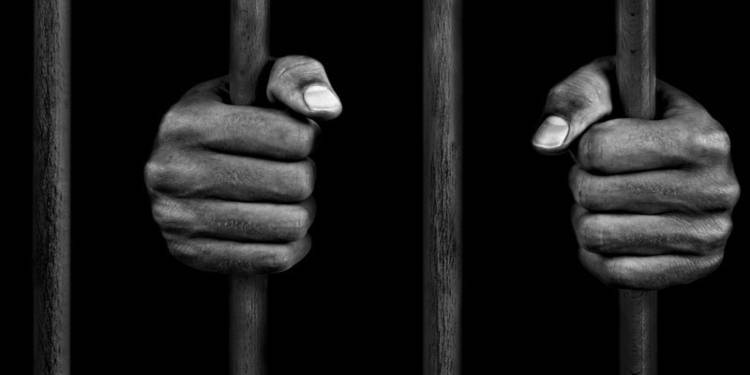
The prison system in Pakistan, particularly in facilities like the District Jail Lahore, presents a stark contrast to international human rights standards, including those established by the Nelson Mandela Rules i.e. the United Nations Standard Minimum Rules for the Treatment of Prisoners. Corruption is a pervasive issue within the system, in District Jail Lahore, practices such as the illegal passing of contraband through methods like Tanga, where items are thrown between cells, highlight the failure of prison staff to uphold security protocols. Such illicit activities often occur with the complicity of prison officers, revealing a deep-seated culture of corruption within the facility. The Mulahaza process, where newly arrived prisoners are presented to prison authorities, often becomes an avenue for exploitation and coercion. Routine inspections, like the Daura, which are meant to ensure proper conditions, often fall short of uncovering the corruption that festers within the institution.
The conditions within Pakistan’s prisons, particularly District Jail Lahore, are far from the standards required by international human rights frameworks. Overcrowding is one of the most significant issues, violating not only Pakistan’s own legal standards but also the principles laid out in the Nelson Mandela Rules. The Prisons Act, 1894 and the Pakistan Prisons Rules, 1978 failed to prevent overcrowded conditions, which lead to deteriorating living standards for prisoners. In District Jail Lahore, the authorised accommodation is 1050 prisoners whereas the population exceeds 8,000, inmates are housed in cramped, poorly maintained barracks that fail to provide adequate space or basic living conditions. These overcrowded areas, such as the Baraks, which include communal washrooms and kitchens, often lack the sanitation necessary for maintaining health and hygiene. The practice of assigning prisoners a mere 20 inches of space for sleeping, coupled with substandard food rations, underscores the neglect of basic human dignity. These conditions violate the Nelson Mandela Rules, particularly Rule 12, which mandates that prisoners should be housed in conditions that do not compromise their health or well-being. The treatment of prisoners, particularly the use of Salami—a form of corporal punishment where inmates are physically assaulted by others upon entry—further exacerbates the violation of Rule 1 of the Nelson Mandela Rules, which prohibits all forms of cruel, inhuman, or degrading treatment.
Healthcare in Pakistan’s prisons also falls drastically short of international standards. Although the Mental Health Ordinance, 2001 and the Juvenile Justice System Ordinance, 2000 outline the need for specialised medical care for prisoners, including the segregation of juvenile offenders, these laws are inconsistently implemented. In many cases, prisoners who require medical attention are subjected to inadequate care, which is exacerbated by the prevalence of illicit substances within the prison. Fauji (cigarettes laced with narcotics) and drugs like Neze-2 are smuggled into prisons, often through methods as bizarre as insertion through the Garha (Anus). While the Nelson Mandela Rules emphasise the right to adequate medical care, Pakistan’s prison system fails to meet these requirements, with insufficient resources and trained personnel available to address the medical needs of inmates. The mental health needs of prisoners, especially juveniles, are often overlooked in 10-Cell, and rehabilitation programs are largely non-existent. This lack of medical care and mental health support violates Rule 22 of the Nelson Mandela Rules, which guarantees prisoners access to necessary medical services.
The Nelson Mandela Rules provide a comprehensive framework for humane prisoner treatment, including the abolition of corporal punishment, improved prison conditions, and guaranteed access to medical care
The juvenile justice system, as outlined in the Juvenile Justice System Ordinance, 2000, and the Punjab Borstal Act, 1926, mandates the segregation of juvenile offenders from adult prisoners. However, in practice, the Munda Khana, a designated area for underage prisoners, is often ill-equipped to provide the necessary resources for their rehabilitation. The lack of specialised facilities for juvenile offenders further undermines the potential for their rehabilitation, violating Rule 59 of the Nelson Mandela Rules, which calls for the provision of education and vocational training for young prisoners. Juvenile detention centers in Pakistan fail to meet these standards, instead focusing primarily on punitive measures rather than rehabilitative efforts.
Reforming Pakistan’s prison system is urgently needed to align with international human rights standards. The Nelson Mandela Rules provide a comprehensive framework for humane prisoner treatment, including the abolition of corporal punishment, improved prison conditions, and guaranteed access to medical care. To meet these standards, Pakistan must enforce existing laws like the Prisons Act, 1894, and the Pakistan Prisons Rules, 1978, ensuring prisoners’ dignity and human rights are protected. The reform also requires addressing corruption, improving infrastructure, and enhancing healthcare services within prisons. Measures to prevent the illegal transfer of contraband and stricter penalties for corrupt practices are crucial steps toward reform. Ending degrading practices like Salami, which hinder rehabilitation, is another necessary change. Additionally, introducing rehabilitation programs, educational opportunities, and vocational training and shifting to a rehabilitative model, as outlined by the Nelson Mandela Rules, would transform the prison system from one focused on punishment to one that fosters rehabilitation. This reform is essential not only for protecting prisoners’ human rights but also for creating a more just and humane criminal justice system in Pakistan.
This post was originally published on this site be sure to check out more of their content.






